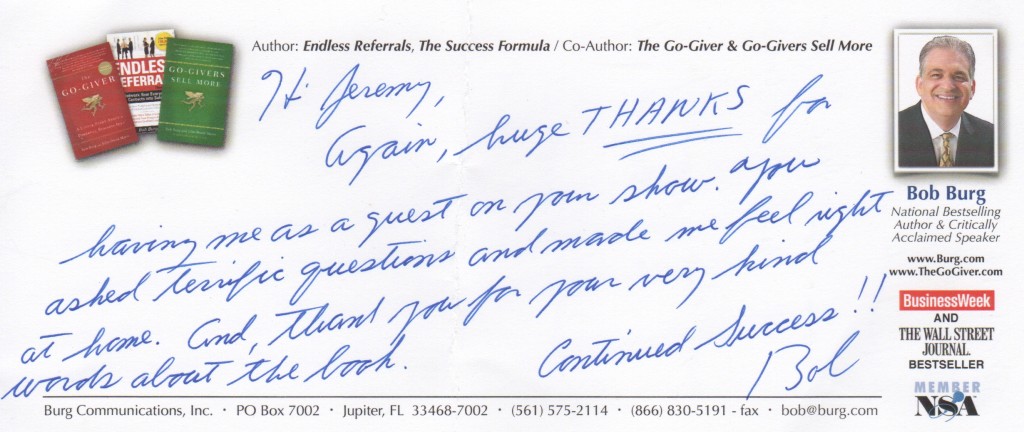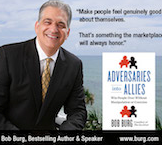Bob Burg is the author of the Go-Giver and several other well known books.
Bob’s books have sold well over a million copies.
The Go-Giver shot to #6 on The Wall Street Journal’s Business Bestsellers list just three weeks after its release and reached #9 on BusinessWeek. It’s been translated into 21 languages. It is his fourth book to sell over 250,000 copies.
Thank you Bob for the nice letter after the interview!
Watch the Full Episode
Prefer to listen to Audio instead?
Podcast: Download (Duration: 36:46 — 42.1MB)
Download Here>> “Right click” here for the mp3
Listen to how Bob’s dad influenced him when he was younger.
Can you guess which major publication Bob’s dad was featured in?
Watch the interview for more.
Bob Burg is a sought-after speaker at corporate conventions and for entrepreneurial events.
Bob Burg has addressed audiences ranging in size from 50 to 16,000 — sharing the platform with notables including today’s top thought leaders, broadcast personalities, Olympic athletes and political leaders including a former United States President.




Thanks Bob for sharing your message with our audience. I will continue to listen to the Go-Giver each year.
Jeremy, thank you for having me on as a guest to discuss John David Mann’s and my book and lots of other things. I enjoyed myself immensely. I apologize for some of the technical difficulties at the beginning. I wasn’t ignoring you when you asked me about being an introvert. LOL. Again, thank you, my friend!
You are very welcome Bob! The technical difficulties is what makes the interview real and authentic. Thank you for taking the time to bring your message to more people.